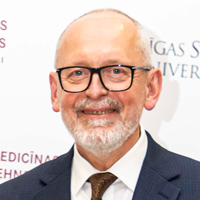RSU METC promotes initiative on simulation-based medical and healthcare education development strategy in Latvia
From 16 to 20 September, the Rīga Stradiņš University (RSU) Medical Education Technology Centre (METC) hosted the international simulation week SimWeek 2024. During the event, a working group meeting was held on 20 September at the Ministry of Health of the Republic of Latvia, where members discussed a simulation-based strategy for medical and healthcare education in Latvia (2025-2027).
Modern medical and healthcare education is unimaginable without the integration of a simulation-based educational approach. More than 10 years ago, recognising the growing importance of simulation and its positive impact on the quality and safety of healthcare, RSU started to introduce simulation technologies and integrate them into medical and healthcare education programmes. Today, we are proud to be the largest simulation centre not only in the Baltic States, but also in Northern Europe.
This important strategic move has helped to provide future doctors, nurses and other healthcare professionals with the opportunity to learn new technical and non-technical skills in a safe and controlled environment; to improve previously learned and rarely practised skills; to prepare for both common as well as rare and complex clinical situations encountered in daily practice; and to enhance their professional competence without putting patients at risk of harm.
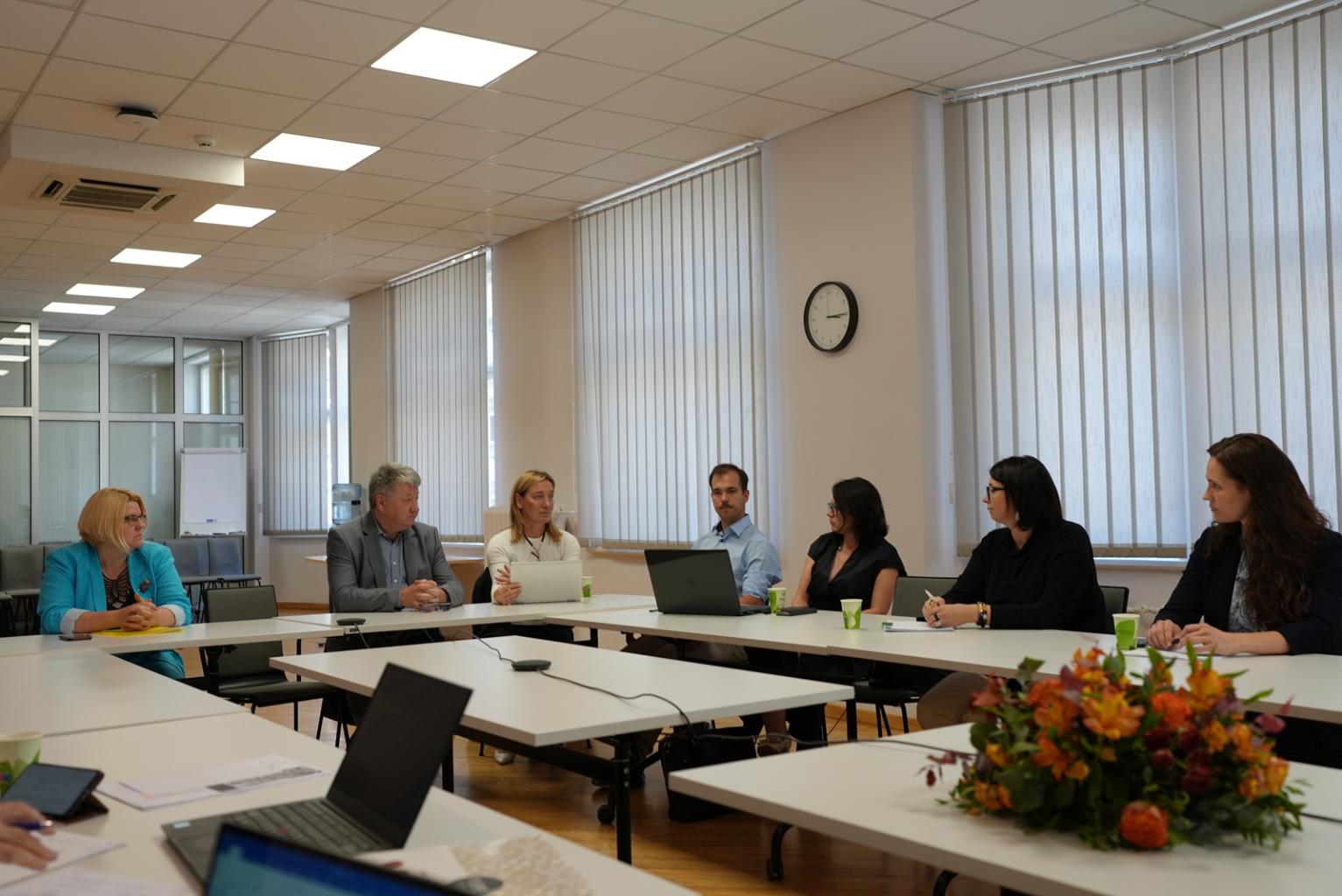
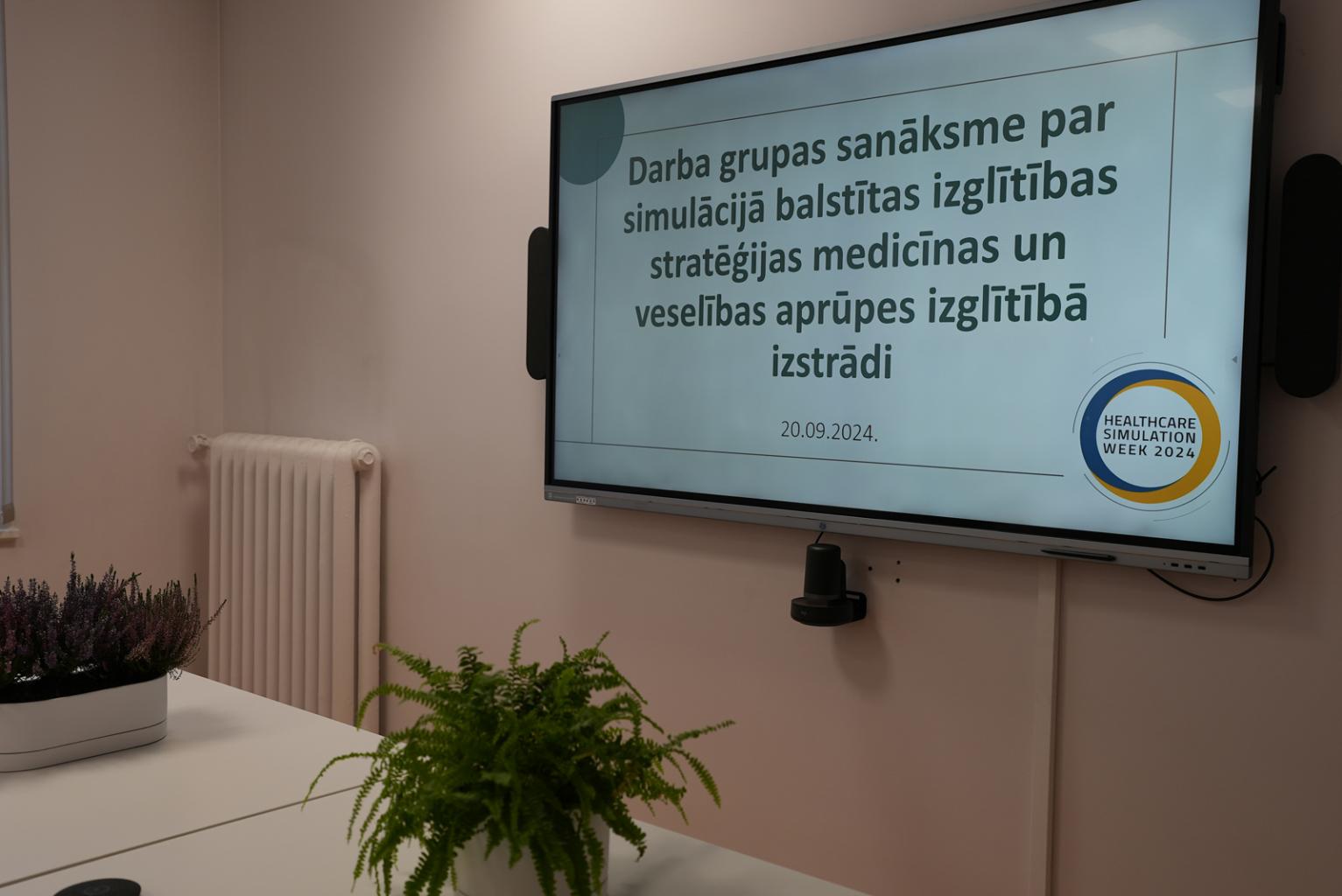
Simulation in medicine and healthcare is the future, and simulation should not be a privilege but a standard practice. Therefore, it is important to create a national ecosystem for this field that everyone can understand.
Prof. Aigars Pētersons, RSU Rector
RSU recognises its leading position in the field of simulation-based education and is therefore responsible for developing it at the national level. The working group discussion is a continuation of the initiative that started on 7 December 2023, when a Memorandum of Cooperation was signed between the Ministry of Health of the Republic of Latvia, Rīga Stradiņš University, the University of Latvia, the Latvian Medical Association, the Latvian Junior Doctors Association, the Latvian Nurses Association, the Union of Professional Organisations of Medical Practitioners of Latvia, and the Emergency Medical Service on the development of a national strategy for simulation-based medical and healthcare education.
The primary goal of the strategy is to create a model for the development and management of simulation-based medical and healthcare education in Latvia and to strengthen the competences, capacities and readiness for action of current and future medical and healthcare professionals.
The strategy focuses on three main directions – recognition of simulation practice in learning environments, development of a governance model for simulation practice in learning environments, and integration of simulation practice in learning environments into medical and healthcare education programmes at all levels. The document is planned to be prepared and submitted to the Ministry of Health by December this year for further referral to the Cabinet of Ministers.
Andreta Slavinska, RSU METC Deputy Director and head of the working group for the development of the strategy document ‘Simulation-based education strategies in medical and healthcare education in Latvia (2025-2027)’, says: ‘The integration of a simulation-based educational approach in medical and healthcare education at all levels is an investment in the quality of healthcare. It affects the safety of both patients and medical practitioners, and its development is a shared responsibility of all stakeholders.
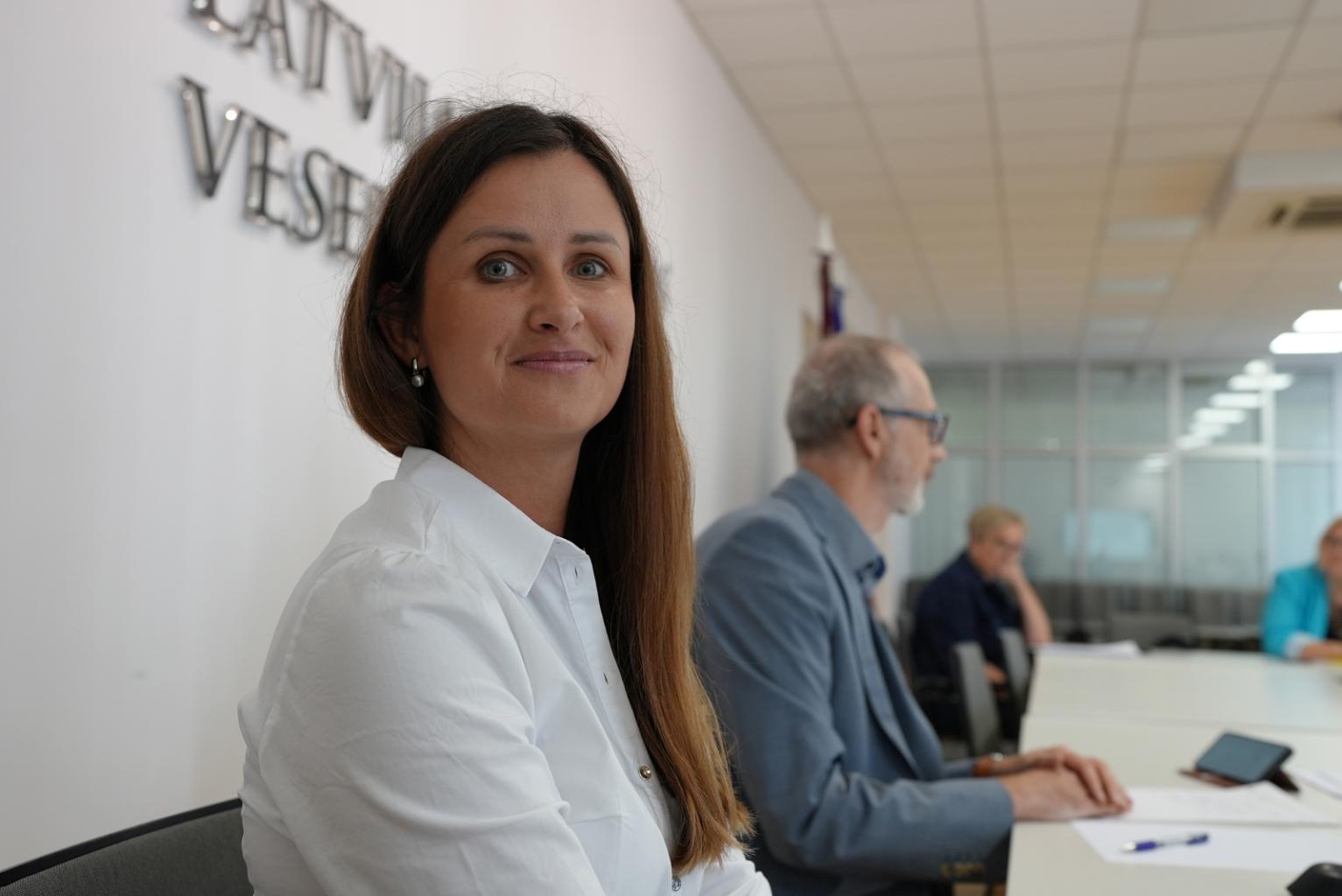
Head of the Strategic Document Working Group Andra Slavinska during the meeting
We are proud to have brought together key organisations that influence the medical and healthcare field to create a common and inclusive ecosystem for simulation-based medical and healthcare education.’
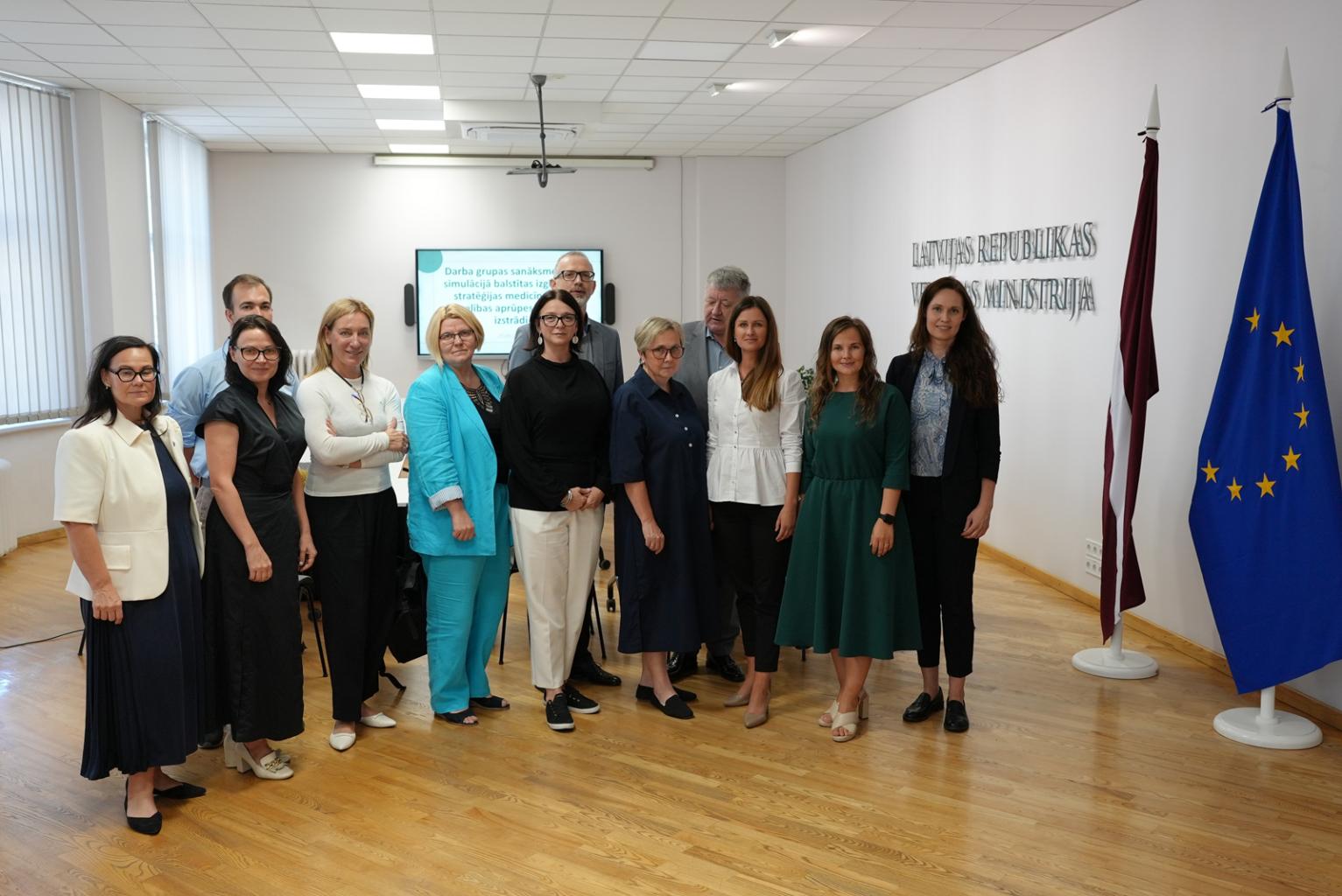
The working group for the development of the document ’Simulation-based education strategies in medical and healthcare education in Latvia (2025-2027)’ consists of Andra Slavinska (Head of the Working Group, RSU), Antra Laumane (Deputy Head of the Working Group, the Head of the Competence Development Centre of the Adult Non-Formal Education Institution, Emergency Medical Service), Evita Grigoroviča (RSU), prof. Ilze Grope (RSU), Zane Liepiņa (Union of Professional Organisations of Medical Practitioners of Latvia), Prof. Vilnis Lietuvietis (Latvian Medical Association), Agita Melbārde-Kelmere (Latvian Nurses Association), Ina Mežiņa-Mamajeva (University of Latvia), Prof. Eva Strīķe (Latvian Medical Association), Ieva Šlēziņa (RSU), Antra Valdmane (Ministry of Health), and Rūdolfs Vilde (Latvian Junior Doctors Association).
Related news
 Time capsule laid at ceremony for construction of new RSU sports complexFor Students, Consolidation, For RSU Employees, Internal consolidation, Development
Time capsule laid at ceremony for construction of new RSU sports complexFor Students, Consolidation, For RSU Employees, Internal consolidation, Development